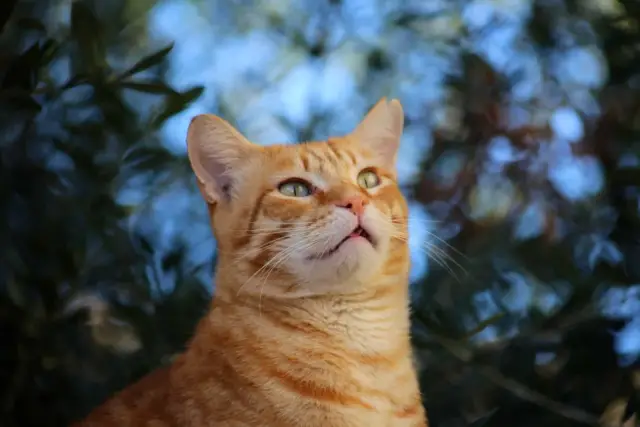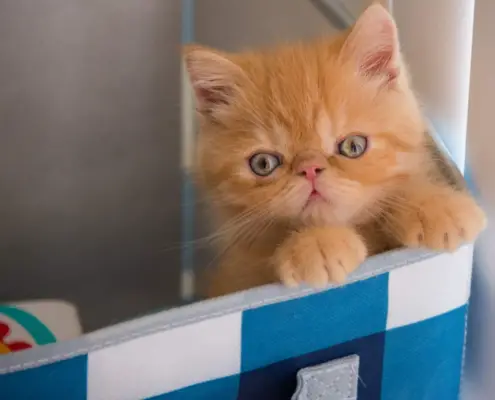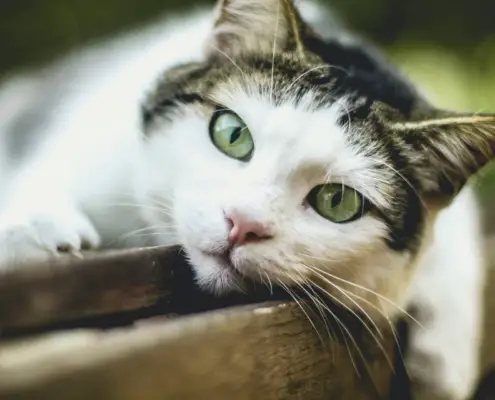
Orange cats have always captivated the hearts of cat lovers with their vibrant and eye-catching fur. The unique and beautiful orange coloration has intrigued many, leading them to wonder why some cats are orange. Unraveling this mystery requires delving into the genetics of these feline companions, understanding the role of the ginger gene, exploring the different shades of orange, and even examining the personality traits associated with orange cats.
Genetics of Orange Cats
To understand why some cats are orange, it is essential to explore the fascinating world of feline genetics. The orange coloration in cats is primarily determined by a gene known as the “ginger gene” or the “O gene.” This gene is responsible for producing orange pigment, called pheomelanin, in the fur. However, not all cats possess this gene, which explains why some cats are orange while others come in different colors. Interestingly, the ginger gene is located on the X chromosome, which means that orange cats are usually male. Female orange cats are relatively rare and often have a unique genetic makeup.
The Role of the Ginger Gene
The ginger gene, also known as the O gene, plays a crucial role in determining the coloration of cats. This gene comes in two variations: dominant and recessive. Cats with the dominant ginger gene will exhibit the orange coloration, while those with the recessive gene will not. When two cats with the recessive ginger gene mate, they have a higher chance of producing orange kittens. This explains why some cats from non-orange parents can still be orange. It is fascinating to see how genetics can influence the physical traits of our feline friends.
Different Shades of Orange in Cats
While orange is a broad term used to describe the coloration of cats, there are actually various shades of orange that can be observed. Some cats may have a deep and rich orange hue, while others may display a lighter and more diluted shade. These variations in color can be attributed to other genes and factors that interact with the ginger gene. For example, the presence of the agouti gene can create a tabby pattern on an orange cat’s fur, resulting in a unique blend of orange and stripes. Understanding these different shades adds another layer of complexity to the mystery of why some cats are orange.
Orange Cats and Their Personality Traits
Beyond their striking appearance, orange cats are known for their distinct personality traits. Many cat owners and enthusiasts believe that orange cats tend to be more outgoing, sociable, and affectionate compared to cats of other colors. These cats are often described as being friendly, playful, and even mischievous. While it is essential to remember that every cat is an individual with its own personality, the association of certain traits with orange cats adds to their allure and charm.
Orange Cats in Popular Culture
Orange cats have also made their mark in popular culture, further reinforcing their unique status. One of the most iconic orange cats is Garfield, the lovable and lasagna-obsessed feline from the comic strip and animated series. Garfield’s popularity has contributed to the perception of orange cats as being fun-loving and full of personality. Additionally, other fictional cats like Puss in Boots from the Shrek franchise have showcased the charm and charisma of orange cats. Their presence in popular culture has undoubtedly played a role in elevating the appeal of these delightful companions.
Health Considerations for Orange Cats
When it comes to the health of orange cats, it is essential to be mindful of certain considerations. While the coloration of their fur does not directly impact their health, studies have suggested that orange cats may be more prone to certain conditions. For instance, male orange cats have a higher risk of developing urinary tract issues such as cystitis. Additionally, some researchers have found a correlation between the ginger gene and a higher likelihood of developing skin cancer. It is crucial for orange cat owners to be aware of these potential health concerns and take appropriate measures to keep their furry friends safe and healthy.
Care and Grooming Tips for Orange Cats
Maintaining the well-being of orange cats involves proper care and grooming. Regular brushing helps keep their fur clean, tangle-free, and reduces the chances of hairballs. Orange cats with longer fur may require more frequent grooming sessions to prevent matting. It is also important to pay attention to their dental health by providing dental treats or regular teeth cleanings. Maintaining a balanced diet and ensuring they have access to clean water is vital for their overall health. Lastly, providing a stimulating environment with toys and scratching posts helps keep these energetic felines mentally and physically active.
Adoption and Rescue of Orange Cats
If you are considering adding an orange cat to your family, adoption and rescue centers are excellent places to find these delightful companions. Many orange cats are in need of loving homes, and adopting one can be a rewarding experience. These shelters often have a variety of orange cats of different ages and personalities, allowing you to find the perfect match for your family. By adopting an orange cat, you not only provide them with a second chance at a happy life but also unravel the mystery of why some cats are orange and experience their captivating personalities firsthand.
Conclusion
The mystery of why some cats are orange is unraveled through the exploration of feline genetics, the role of the ginger gene, the different shades of orange, and the personality traits associated with orange cats. These extraordinary feline companions have captured our hearts with their stunning appearance and lovable personalities. From the genetics that determine their coloration to the unique traits they possess, orange cats continue to captivate cat lovers around the world. Whether you are considering adopting an orange cat or simply marveling at their beauty, these feline friends will forever remain a delightful mystery in the realm of feline companionship.
If you enjoyed my article, I would appreciate you sharing it with your network.

Sima Ndlebe
Sima writes for CatBuzz. He is interested in Cats, Health and Fitness, and Entrepreneurship.
Published: 25 October 2023



